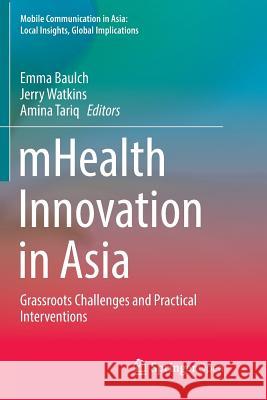Mhealth Innovation in Asia: Grassroots Challenges and Practical Interventions » książka
topmenu
Mhealth Innovation in Asia: Grassroots Challenges and Practical Interventions
ISBN-13: 9789402415155 / Angielski / Miękka / 2019 / 131 str.
Kategorie:
Kategorie BISAC:
Wydawca:
Springer
Seria wydawnicza:
Język:
Angielski
ISBN-13:
9789402415155
Rok wydania:
2019
Wydanie:
Softcover Repri
Ilość stron:
131
Waga:
0.21 kg
Wymiary:
23.39 x 15.6 x 0.79
Oprawa:
Miękka
Wolumenów:
01
Dodatkowe informacje:
Wydanie ilustrowane











